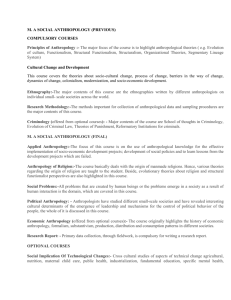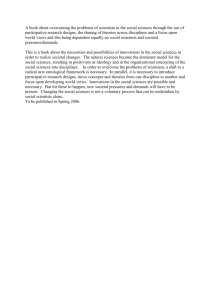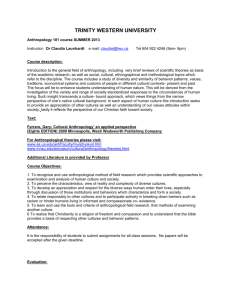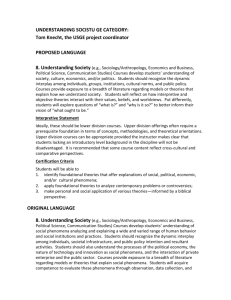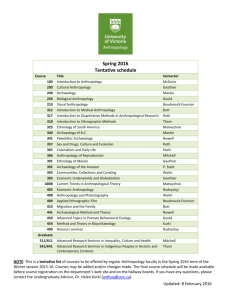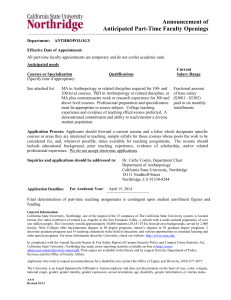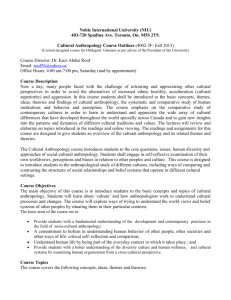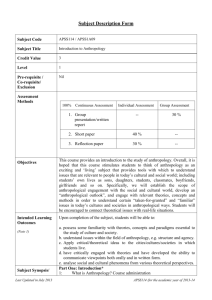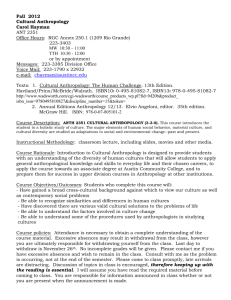Objective and attainment levels
advertisement
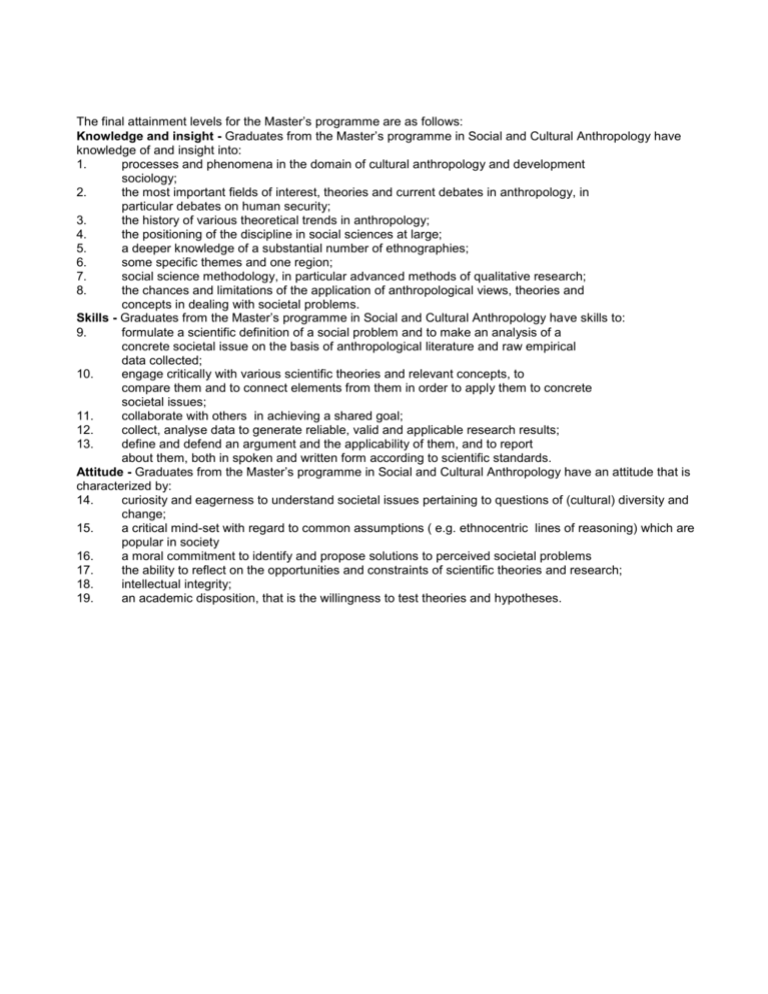
The final attainment levels for the Master’s programme are as follows: Knowledge and insight - Graduates from the Master’s programme in Social and Cultural Anthropology have knowledge of and insight into: 1. processes and phenomena in the domain of cultural anthropology and development sociology; 2. the most important fields of interest, theories and current debates in anthropology, in particular debates on human security; 3. the history of various theoretical trends in anthropology; 4. the positioning of the discipline in social sciences at large; 5. a deeper knowledge of a substantial number of ethnographies; 6. some specific themes and one region; 7. social science methodology, in particular advanced methods of qualitative research; 8. the chances and limitations of the application of anthropological views, theories and concepts in dealing with societal problems. Skills - Graduates from the Master’s programme in Social and Cultural Anthropology have skills to: 9. formulate a scientific definition of a social problem and to make an analysis of a concrete societal issue on the basis of anthropological literature and raw empirical data collected; 10. engage critically with various scientific theories and relevant concepts, to compare them and to connect elements from them in order to apply them to concrete societal issues; 11. collaborate with others in achieving a shared goal; 12. collect, analyse data to generate reliable, valid and applicable research results; 13. define and defend an argument and the applicability of them, and to report about them, both in spoken and written form according to scientific standards. Attitude - Graduates from the Master’s programme in Social and Cultural Anthropology have an attitude that is characterized by: 14. curiosity and eagerness to understand societal issues pertaining to questions of (cultural) diversity and change; 15. a critical mind-set with regard to common assumptions ( e.g. ethnocentric lines of reasoning) which are popular in society 16. a moral commitment to identify and propose solutions to perceived societal problems 17. the ability to reflect on the opportunities and constraints of scientific theories and research; 18. intellectual integrity; 19. an academic disposition, that is the willingness to test theories and hypotheses.
